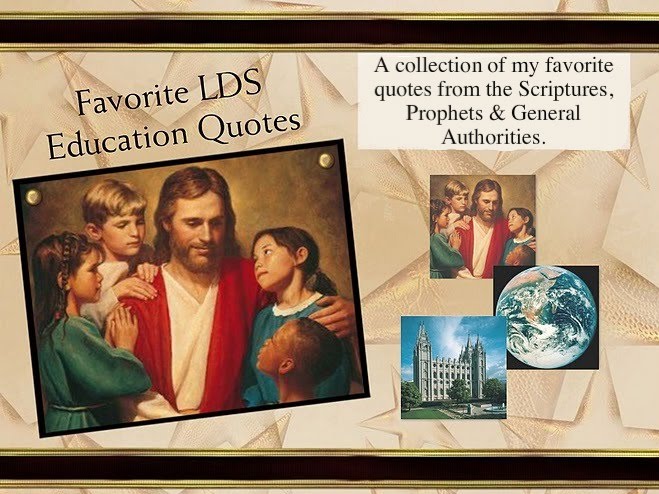Schooling and Professional Training
We should always work to educate our minds and our hands so we can succeed in our chosen fields. Our education should be an influence for good and our use of it should distinguish us as people of integrity. A good education will prepare us for opportunities as they come and will help us be an asset to our families, the Church, and our communities.
Lifelong Learning
In addition to furthering our education through formal schooling, we can continue learning by reading, attending wholesome cultural events, visiting museums and historic sites, and observing the world around us.
Click here to read more about education from LDS.org and to find links to many more articles about education.
